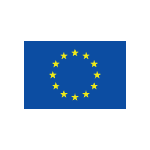In 2020, FEBA started working on quantifying the impact of European Food Banks. The activities were built on three milestones:
- 1. Definition of common KPIs as well as a dataset structure, and data collection strategies;
- 2. Development of the online Observatory on Food Donation; and
- 3. Promotion and dissemination of the Observatory.
In YEAR-1 of the project, FEBA coordinated the first data collection campaign according to the commonly defined indicators and 28 FEBA Members provided their information by using the online platform. Based on the data received, FEBA was able to assess the impact of its members as regards economic, social, nutritional, and environmental aspects.
Impact of FEBA membership in 2020
In some countries such as Estonia, Germany, and the Netherlands, FEBA Members redistribute food not only to other charitable organisations but also provide food directly to end beneficiaries. This is the aggregation of data provided by FEBA Full Members at European level. Due to technical difficulties, the number of beneficiaries, food quantities, and co-workers in 2020 were not available for Tafel Deutschland e.V. (Germany). These numbers are replaced with data 2019.
Kick-off meeting
- 2 March 2020
- Brussels (Belgium)
On 2 March, FEBA organised the Kick-off meeting of the project “Quantifying the impact of European Food Banks – From Farm to Fork”. Nine Food Bank representatives from different European countries participated in person. For those who were unable to be physically present at the meeting due to the COVID-19 outbreak and in order to facilitate the participation as much as possible, the meeting was broadcasted live with the possibility of interacting via email.
The main objective was to present the project and its goals, which mainly consist in:
- Sharing a standardised and consistent methodology for data collection across FEBA Members;
- Assessing the impact of FEBA Members taking into consideration the economic, environmental, nutritional, and social impacts;
- Defining how to make sense of the information for impact management and measurement; and
- Encouraging digital transformation within our membership.
Eight participants from the selected Pilot Group (Belgium, Greece, Hungary, Ireland, Italy, Norway, and Spain) actively participated in the online workshop. It was guided by the Project Team (FEBA Team, Laura Gavinelli, Fabio Fraticelli, and Chiara Grassi) with inspiring insights provided by external experts.
Following the launch of the project during the kick-off meeting on 2 March 2020, the first online workshop for the Pilot Group pursued the objectives to identify common KPIs, share a standardised and consistent methodology for data collection across FEBA Members, and define how to make sense of the information for impact management and measurement.
The second online workshop focused on communication following the notion of “make data speak”. It was organised by FEBA and took place virtually. Nine participants from the selected Pilot Group (Belgium, Greece, Hungary, Ireland, Italy, Norway, Spain, and UK) actively participated in the meeting, which was guided by the Project Team (FEBA Team, Laura Gavinelli, Fabio Fraticelli, and Chiara Grassi) with inspiring insights from external experts.
The workshop was structured as an umbrella session entailing three main messages:
- Make data speak primarily means to boost internal awareness, benchmarking, and bench learning (within the FEBA network);
- Data should speak the language of recipients, requiring the planning of dedicated communication to the diverse stakeholders; and
- Good Information based on sound data and impacting stories can help to raise funds.
The three-fold topic was addressed from the perspective of Food Banks but also with the support of external experts.
From this point on, the Pilot Group concentrated on four areas of indicators striving to measure the economic, social, environmental, and nutritional impact of Food Banks. The objective has been to define commonly supported results as a springboard for the creation of an online Observatory of Food Donation.
The third online workshop focused on the economic area. The topic was addressed from the perspective of Food Banks but also with the support of external experts.
The online meeting was open to the entire FEBA membership to take stock of the evolution of the project. It also envisaged to inform Full and Associate Members on the work carried out by FEBA, the Pilot Group of eight members (Belgium, Greece, Hungary, Ireland, Italy, Norway, Spain, and UK), and external experts.
During the Mid-Term Plenary Session, participants were granted an overview on the entire project, from the beginning in March 2020 until the meeting day. Representatives from DG Health & Food Safety (DG SANTE, European Commission) attended, enriching the meeting with their input and exchanging views with the Food Bank representatives and the Project Team.
The aim of the meeting was to recap the work conducted so far and to share the first version of the online Observatory on Food Donation.
Final Plenary Session
- 9 February 2021
- Online
The online meeting was open to the entire FEBA membership (Full and Associate Members) with the aim to present the online Observatory on Food Donation and summarise the activities carried out in the course of the year by FEBA and the Pilot Group consisting of 8 Members (Belgium, Greece, Hungary, Ireland, Italy, Norway, Spain, and UK), together with external experts.
food, no waste!
FEBA Data Centre
On 29 September 2020, FEBA organised a virtual event on the occasion of the first-ever International Day of Awareness of Food Loss and Waste, offering. The event offered many possibilities to the online visitors to discover the work of FEBA and it members in the prevention of food loss and waste.
One of the main area of the virtual platform was the FEBA Data Centre, giving online participants the opportunity to discover the project “Quantifying the impact of European Food Banks – From Farm to Fork” through reports, videos, quizzes, and a live chat.

This project has received financial support from the European Union through the Grant Agreement SANTE/2020/D1/FEBA/SI2.844800.
The opinions expressed in this project do not necessarily reflect the official position of the European Commission.
With the support of




